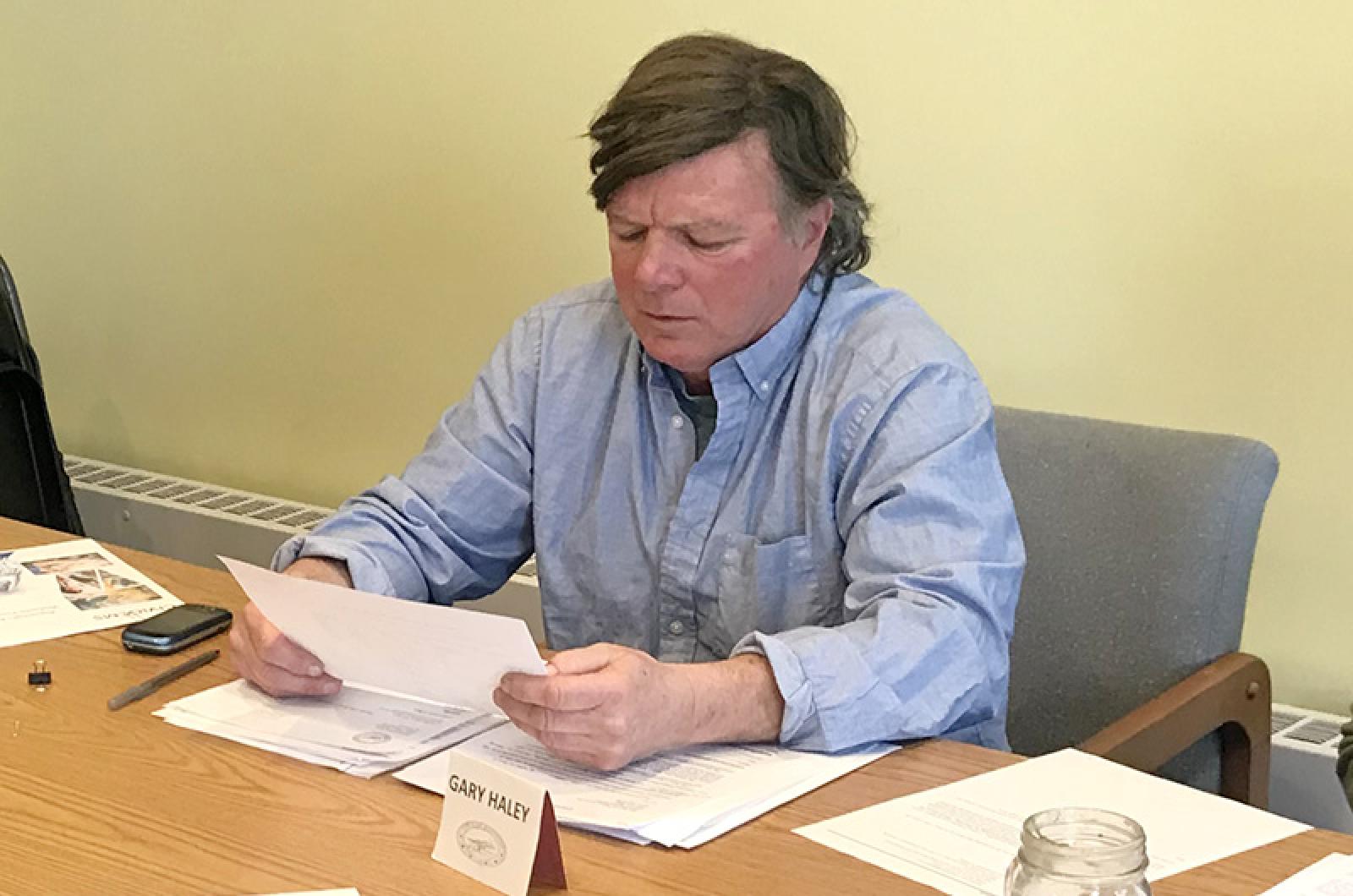Aquinnah select board member Gary Haley has been ordered by the state ethics commission to pay $10,000 in civil penalties for a 2018 violation of state ethics law, when he billed the town more than $17,000 for electrical work he performed during an Aquinnah Circle beautification project.
In a decision released Tuesday, the state ethics commission found Mr. Haley violated Section 19 of the state’s conflict of interest law governing self-dealing and nepotism on two occasions: once when he appointed himself to perform work for the town, and again when he signed off on a bill for that work as a town select board member.
Mr. Haley participated in a project to bury overhead cables along Aquinnah Circle in 2018, alongside the town and three utility companies. The project was part of a first step in a broader beautification plan for the area, funded largely by Community Preservation Act money to improve the town’s unique viewshed over the Gay Head Cliffs, Philbin Beach and the Gay Head moraine.
A master electrician by trade, Mr. Haley volunteered to perform work burying the cables for free as a supplement to the utilities companies on site, according to a statement released by the ethics commission Tuesday.
But on his first day on the job, according to the statement, Mr. Haley elected to perform further work on the project without consulting the town, and decided to bill the town for that work. He later billed the town $17,445, and approved that expenditure in his role as a selectman.
“Without consulting the town, Haley decided that he would do this additional work and seek payment from the town for it,” the statement reads. “The conflict of interest law prohibits municipal employees from participating in their official capacity in matters in which they know they have a financial interest. The commission found that Haley violated this prohibition when, as a select board member, he decided that he would install the conduits, unilaterally decided that the town would be charged for the work, determined on his own what the payment to himself would be, and then signed off on the town’s payment to himself.”
In a statement emailed to the Gazette, Richard Gross, an attorney who has represented Mr. Haley, disputed the ethics commission's finding that Mr. Haley knew he was approving his own invoice, and defended Mr. Haley's actions.
Although Mr. Haley has 30 days to appeal the commission's decision to the state Superior Court, Mr. Gross said that Mr. Haley would accept the fine, and added that Mr. Haley plans to continue to serve the town as a member of its select board.
"This matter has been pending for over four years and Gary will accept the decision and put it behind him," Mr. Gross wrote in part. "He did work in good faith as a volunteer to respond to an emergency at Aquinnah Circle in the weeks before the tourist season commenced in Aquinnah. The conduct of Eversource’s contractors required him to spend an enormous amount of time and to hire two additional laborers to do the job he volunteered to do. He only sought payment when the cost of this work greatly exceeded what he had volunteered to do. And he expected the town voters to approve payment for this work in the best interests of the Town. He will continue to serve his town," the statement reads.
Mr. Haley was cited by the ethics commission in May of 2021 for the violations. After initially going to mediation, the two sides could not agree on an outcome and the state proceeded with a two-day show-cause hearing in June. The ethics panel grilled Mr. Haley about the violations during the hearing, listening to testimony from town administrator Jeffrey Madison, other select board members and employees from utility companies also involved in the work.
During the proceedings, Mr. Haley remained steadfast in his denial of the claims, arguing among other things that he did the work as an emergency and believed that payment would have to go before voters at town meeting.
Mr. Haley began his third term as selectman earlier this year, fending off a challenge by Macey Dunbar.
The state ethics commission cleared Mr. Haley of two other alleged violations in their decision Tuesday, saying that the state had not proven Mr. Haley illegally contracted with the town because he initially offered to do the work for free. But the ethics commission had stern words regarding Mr. Haley’s decision to bill the town after offering to do the work without payment.
“We do not condone this conduct any more than we could condone a violation,” the ethics commission wrote in their 20-page decision.
The commission also cleared Mr. Haley of overbilling the town for the approximately 22 hours of work that he and two others performed to bury the electrical wires, saying the state had not met its burden of proof.
“Although the evidence raised questions regarding whether two laborers Haley claimed to have paid performed the work or whether other workers did this work without receiving pay from Haley, the commission found it was not proved that the town did not receive 22 hours of work by two laborers,” the statement from ethics commission spokesman Gerry Tuoti reads.
Mr. Haley was ordered by the ethics commission to pay $5,000 for each of the two violations of section 19, amounting to half of the potential penalty for the violations. The state ethics commission does not hold power to adjudicate or bring criminal charges.
Mr. Tuoti confirmed that Mr. Haley will not be required to pay back the approximately $17,000 he received from the town.
Updated to include a statement from Mr. Haley's attorney.






Comments
Comment policy »